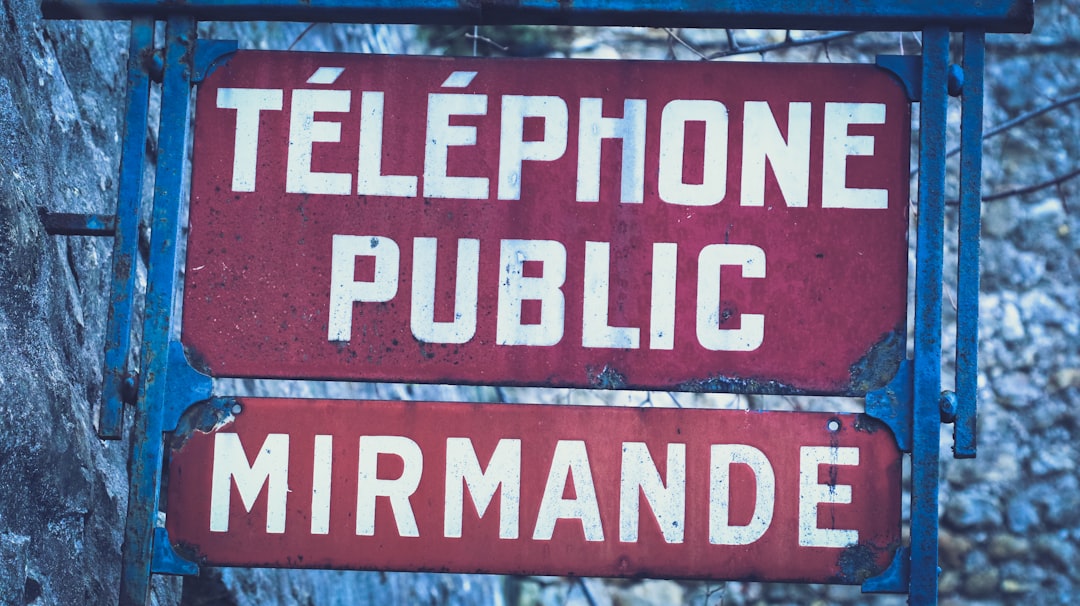Charitable organizations in Columbus, Indiana, must adhere to strict state "Do Not Call" laws to protect residents from unwanted telemarketing. Nonprofits and for-profit groups must obtain explicit consent before contacting potential donors and respect frequent call limits. Noncompliance can lead to penalties, fines, and damage to fundraising efforts. Seek guidance from a Do Not Call Lawyer Indiana or attorney to ensure compliance, maintain integrity, and protect donor privacy rights.
In Columbus, Indiana, navigating charitable telemarketing can be complex. This article explores the intricate balance between fundraising efforts and consumer protection, specifically focusing on Do Not Call laws and their impact on nonprofit organizations. We delve into the legal perspective of Indiana’s regulations, examining the rights of consumers and obligations of charities. Understanding when a charity’s call becomes unwanted is crucial, as it can trigger severe legal implications for nonprofits and their attorneys, including do not call lawyers and attorneys in Indiana.
Understanding Do Not Call Laws in Indiana: A Legal Perspective

In Indiana, the “Do Not Call” laws are designed to protect residents from unwanted telephone solicitations. These laws are enforced by the Indiana Attorney General’s Office and can carry significant penalties for non-compliance. Both for-profit and nonprofit organizations must adhere to these regulations, especially when making charitable calls. Nonprofits in Columbus, Indiana, should be aware that they must obtain explicit consent before dialing numbers on their lists, and even then, there are restrictions on the number of calls made within a certain period.
If a charitable organization or its representatives, including what some might refer to as do not call lawyers Indiana or do not call attorneys Indiana, fail to comply, they could face legal repercussions. Fines can be imposed, and the organization’s ability to raise funds through phone campaigns may be jeopardized. To ensure compliance, it is advisable to consult with a local do not call lawyer Indiana or do not call attorney Indiana who specializes in nonprofit law to understand and navigate these regulations effectively. This approach will help maintain the integrity of fundraising efforts while respecting residents’ privacy rights.
Charitable Organizations and Their Telemarketing Practices

Charitable organizations play a vital role in communities across Indiana, including Columbus, but they must adhere to strict rules when it comes to telemarketing and fundraising calls. While their missions are often noble, the Do Not Call laws in Indiana are designed to protect residents from unwanted phone solicitations. These laws extend to charitable organizations, limiting their ability to make unsolicited calls to potential donors.
Nonprofit groups seeking donations must obtain explicit consent before calling, ensuring that callers have a prior relationship with the organization or have agreed to be contacted for fundraising purposes. Failure to comply with these rules can result in legal consequences, as individuals can file complaints with the Indiana Attorney General’s office against organizations that violate Do Not Call laws. For those who find themselves on the receiving end of unwanted calls from charitable organizations, consulting a do not call lawyer in Indiana or an attorney specializing in do not call laws is advisable to understand their rights and explore potential legal remedies.
When Does a Charity's Call Become Unwanted?

In Columbus, Indiana, just like in many other places, charitable organizations must adhere to strict guidelines regarding telemarketing practices to ensure they respect the privacy and peace of mind of residents. While many donations are welcomed, a charity’s call can become unwanted when it becomes intrusive or excessive. For instance, repeated calls from different organizations within a short period might be considered overbearing. If an individual has previously requested not to be contacted by a particular charity, any subsequent calls from them could breach the Do Not Call laws and result in legal repercussions.
Moreover, certain behaviors like aggressive sales tactics, providing unwanted information, or failing to identify themselves as representatives of a charitable organization can prompt recipients to view these calls as intrusive. Individuals who feel their privacy is invaded by relentless fundraising efforts have the right to take action against such organizations, especially if they are represented by do not call lawyers in Indiana. Nonprofit organizations must strike a balance between raising funds and respecting the boundaries set by potential donors, ensuring their calls align with ethical marketing standards.
Legal Implications for Nonprofit Organizations in Columbus, IN

Nonprofit organizations in Columbus, Indiana, must adhere to strict regulations regarding telemarketing and donor privacy, as outlined by state laws and federal guidelines. Violations of Do Not Call (DNC) laws can result in significant legal implications for charitable entities. These rules protect residents from unwanted phone solicitations and give donors control over how their personal information is used.
Any charitable organization engaging in fundraising activities through phone calls must ensure they have proper authorization and consent. A violation of a donor’s privacy or intentional ignoring of a registered DNC status may lead to legal action, including fines and damage to the organization’s reputation. Therefore, it’s crucial for nonprofits to employ ethical practices, seek legal advice from a Do not call lawyer Indiana, or consult with an attorney specializing in nonprofit law to ensure compliance in their fundraising efforts across the state.
Navigating Complaints: Rights of Consumers and Responsibilities of Charities

When it comes to navigating complaints about do not call laws in Columbus, Indiana, both consumers and charitable organizations have rights and responsibilities. If you’re a consumer, you have the right to refuse calls from charities and other organizations, and your request should be honored. This means that any unwanted phone calls from nonprofits or their representatives could constitute a violation of state law.
For charitable organizations in Indiana, understanding and adhering to do not call regulations is crucial. While they are allowed to make fundraising calls, there are strict guidelines on frequency and consent. A do not call lawyer or attorney in Indiana can provide guidance on navigating these rules, ensuring compliance, and addressing consumer complaints effectively. Organizations that fail to respect these boundaries risk facing legal repercussions from indignant consumers seeking redress through a do not call law firm in Indiana.






